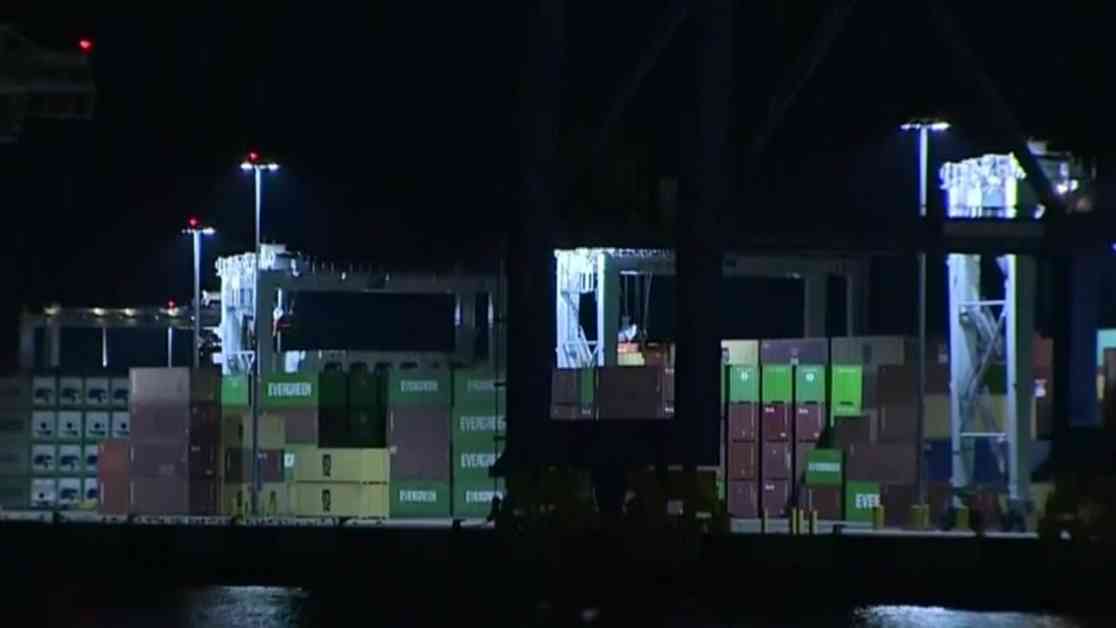The United States is facing a potential crisis as dockworkers across the East and Gulf coasts prepare to go on strike. The International Longshoremen’s Association, representing 45,000 members, is set to walk off the job at midnight, threatening to disrupt operations at 36 ports responsible for handling half of the nation’s goods.
The strike is a result of a dispute over wages and the use of automation in port operations. The union has accused the United States Maritime Alliance of offering an unacceptable wage package while enjoying significant profits. They are demanding fair compensation for their essential role in keeping American commerce moving.
If the strike persists, it could lead to higher prices and delays in goods reaching households and businesses. This could have a significant impact on the supply chain, causing disruptions during the peak holiday shopping season. Perishable imports like bananas are particularly at risk, with 75% of the nation’s supply passing through the affected ports.
The potential strike is also causing concerns internationally, with ripple effects expected in countries like the United Kingdom, where the U.S. is a major trading partner. Businesses are already diverting shipments to West Coast ports to avoid potential disruptions, leading to congestion and increased pressure on demand.
President Joe Biden has indicated that he will not intervene in the strike, citing a commitment to collective bargaining. While the Taft-Hartley Act allows for a court-ordered cooling-off period in cases of economic danger, the administration is urging both parties to negotiate in good faith.
The strike by ILA members, the first since 1977, could have far-reaching consequences for the economy. Businesses may face additional costs for delays, and consumers could see higher prices as retailers grapple with supply chain disruptions. The situation remains fluid, with all eyes on the potential impact of the impending strike on the nation’s economy.


